Reviving Ducsu: Do's and don'ts
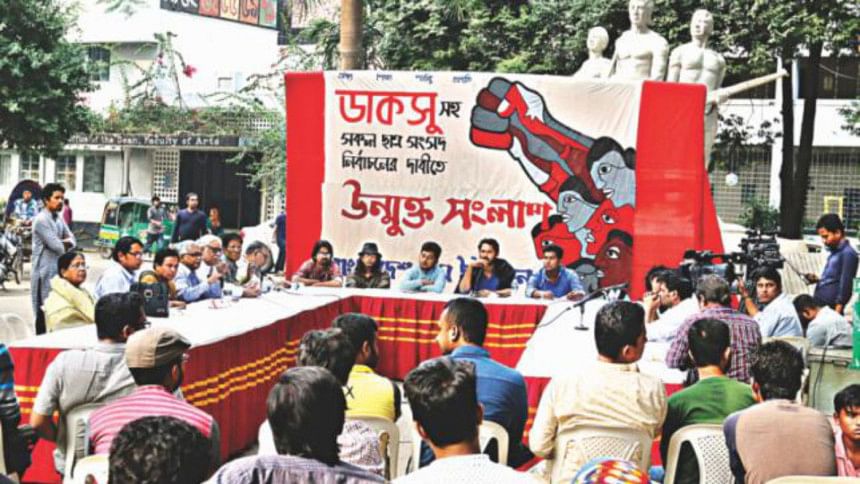
After almost three decades, the election of the Dhaka University Central Students Union (DUCSU) may be held under pressure due to public demand and nudging by a rule of the High Court. The last such election was held in June 1990. Ironically, restoration of democracy and toppling of the military-backed government in 1990 by a mass movement marked the end of this exercise of democracy in academia. Will its revival now meet the expectations of students, citizens and well-wishers of education?
It has been said often, justifiably, that there is a glorious history of students' involvement in national politics, especially during the state language movement and in the 1960s and 1970s when students were the vanguards of citizens' voice on important national issues. Students then showed the way to political leaders at critical moments.
Politically conscious and active students, a minority among the general body of students, who were inclined towards different political ideologies, had their own organisations. A spectrum of political views was reflected among these organisations. They protected their independence and were not directly linked to or affiliated with major political parties of the country.
As a general rule, the elected student's union was concerned with extra-curricular, cultural, sports and creative campus activities, working collaboratively with the university authorities. The elected union and the independent organisations had separate spheres of activities, except when a critical national issue arose that agitated the public in general, such as the language movement and the Pakistani regime's education commission reports.
The character of the student organisations changed during the military rule of Ayub Khan in the 1960s when his henchman provincial governor Monaem Khan assigned the government intelligence branch to create the National Student Federation (NSF). Its job was to oppose, harass and intimidate genuine student organisations and the general student body who had no sympathy for the authoritarian regime.
Financed, armed and protected by the authorities, NSF had the license to use any means including violence, extortion and other crimes to subdue their opponents. NSF thugs even assaulted professors with impunity.
The approach used by the Ayub regime to control student organisations cast a long shadow.
The post-1975 military regimes in Bangladesh followed Ayub's playbook to create their own loyal student organisations. Unfortunately, these authoritarian practices and attitudes became deeply rooted in the political culture of the country.
In the post-1990 era, the political parties also found it expedient to continue with the practice of maintaining and supporting their own student arms. Occasional calls for delinking political parties and student organisations and including such a stipulation in election regulations for people's representation fell on deaf ears. The ruling parties also found it convenient to do away with elected student unions in universities and colleges. Student politics was completely taken over by the major political parties and main student bodies lost their independent existence.
It is in this context that the five most distinguished educationists of the country felt it was necessary to cut the umbilical cord of student organisations to their political parents. In April 2010, when the National Education Policy was about to be announced, Professor Kabir Chowdhury, Professor Zillur Rahman Siddiqi, Professor Jamal Nazrul Islam, Professor Anisuzzaman, and Professor Serajul Islam Chowdhury had made this appeal. Three of them are no more today.
Sir Fazle Hasan Abed, in a speech at the Higher Education Assembly at the Senate Hall of Dhaka University, said, "It embarrasses me to recite the litany of problems that have been listed in the news media and research reports. It is long and painful—the wrong side of student politics leading to many kinds of crimes that would be credit to a mafia godfather."
Sir Fazle went on, "The pernicious influence spreads to dormitories, campus life, admission of students, question leaks, tenders and contracts for university business, safety of female students, and even the appointment of staff and teaching personnel" (Higher Education Assembly, March 11, 2018).
The onus of bringing about a change in this situation, first recognising that as a serious problem, is largely on the ruling regime. Recent events in relation to the public service job quota movement and student protests about road safety do not augur well.
Will the student union election be a replay of the battles fought in parliamentary and local elections in the country—riddled by violence, flouting of election rules, and complaints about preventing voters from voting, stuffing ballot boxes, and partisanship of election officials?
It may well be a charade if a free play of the student arms of the ruling party and the other parties is not seriously restrained by a deliberate decision of the political leadership and offering necessary support to university authorities to conduct a fair and clean election. It may be too much to expect at present in the charged atmosphere created by the upcoming national parliamentary election. At the least, some essential conditions for holding a fair student body election must be fulfilled.
Nominations should be for each individual position, rather than as a formal or informal panel, and should be without the label or affiliation of the student organisations, especially those linked with political parties.
Call for nominations, scrutiny of candidates, campaigning, conducting election and declaring results should be completed within a short time, preferably in no more than two weeks.
There should be clearly stated rules and regulations for the election process including the nomination rules, campaign activities and modes of propaganda, and expenditure limits—discouraging the election to be a lengthy, high-stake and expensive operation.
The university authorities and the residential halls need to take control of allocation of seats, dining halls and general discipline in residential halls in order to ensure that the voters list and the voting process are not marred by intimidation.
An election monitoring board comprised of respected and known-to-be non-partisan faculty members should be appointed with the task of monitoring compliance with the election rules and the authority to cancel candidacy for serious violations of rules. The board should be allowed to set its own procedures for doing its job and all cooperation should be offered to it by the university authorities.
The "Don'ts" would be the opposite of the "Do's" listed above. The university authorities and law-enforcing bodies need to pledge not to play favourites directly or indirectly among candidates in the student union elections.
It is helpful that the DUCSU election would be held in the new year after the parliamentary election is over. The education authorities and the government need to follow up this election with student body elections in all universities and colleges applying the same ground rules.
Manzoor Ahmed is Professor Emeritus at BRAC University.



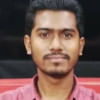

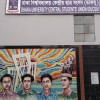
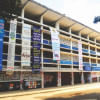
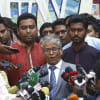


Comments